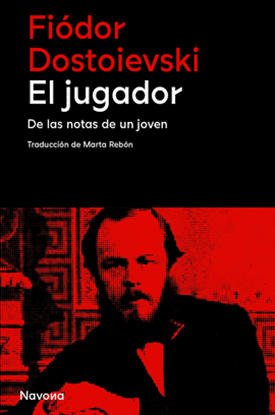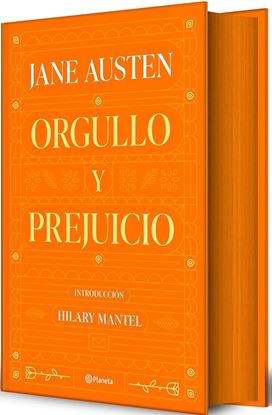

EL JUGADOR (NAVONA)
Alexéi Ivánovich, el tutor de la familia del general Zagorianski, se ve arrastrado al vértigo del juego en la ciudad-balneario de Ruletemburgo, un escenario hostil habitado por almas deambulantes donde la fortuna y el destino se entrelazan de manera inextricable. A medida que Alexéi se entrega a la ruleta, la turbación de su espíritu, acentuada por sus sentimientos hacia Polina, la hijastra del general, hará saltar por los aires las relaciones de todos los personajes, atormentados por sus deseos y sobrepasados por la impotencia ante su ruina.
Dostoievski despliega toda su genialidad en una cartografía de pasiones y obsesiones humanas que reflexiona sobre el poder que nuestros deseos incontrolables ejercen sobre nuestra suerte y voluntad. Una obra de profundo cariz autobiográfico que el autor escribió en menos de un mes con la intención de saldar las deudas de su propia adicción al juego y que ahora permite a Navona ampliar su catálogo de Ineludibles con una traducción inédita de Marta Rebón.
1,995
1,496
EL CORAZON DE LAS TINIEBLAS
Charles Marlow es enviado desde Londres al Congo en busca del responsable de una explotación de márfil, Kurtz, del que hace tiempo no se tiene noticia. Durante esa aventura, que le lleva a adentraser río Congo arriba, Marlow descubrirá la dureza de la oscuridad de una sociedad colonial brutal y miserable impuesta por los europeos en el corazón de África. Conrad traslada a este libro el viaje que realizara como capitán de un mercante, cuando Leopoldo II de Bélgica era propietario del Congo, que le adentró en las tinieblas y le hizo abandonar la vida de marino y la esperanza en la condición humana.
1,995
1,496
NOTRE DAME DE PARIS (TD)
Notre-Dame de París cuenta la historia de la gitana Esmeralda, quien en compañía de su cabra Djali toca la pandereta y baila en las calles de París para subsistir, hasta que se la acusa de haber asesinado al capitán Phoebus, su amado, y se la condena a la horca. Sin embargo, el jorobado Quasimodo, campanero de Notre-Dame, quien tras su deformidad esconde un corazón sensible y sediento de amor, luchará para salvar a la gitana. Recreación del mito de la bella y la bestia y uno de los monumentos de la literatura francesa, Notre-Dame de París es una historia verdaderamente inmortal.
1,995
1,496
ORGULLO Y PREJUICIO (TD) (MANTEL)
El gran deseo y afán de la señora Bennet es casar a sus cinco hijas ventajosamente para asegurar su futuro incierto. Por ello, cuando llega a la zona el señor Bingley, un joven acaudalado y soltero que alquila la imponente finca de Netherfield, está convencida de que conseguirá sellar una unión favorable con una de ellas. La novela inicia a lo largo de esa temporada de bailes y se centra en los romances y los compromisos de las jóvenes Bennet, pero también desgrana las consecuencias de esas elecciones y la gran responsabilidad e importancia de elegir marido para las mujeres entonces. En esta novela, Jane Austen presenta un análisis preciso e irónico del amor a principios de s. XIX.
1,995
1,496
SHERLOCK HOLMES. CUATRO NOVELAS (TD)
Una edición especial, ideal para amantes del mítico detective Sherlock Holmes
Sumérgete en los emocionantes misterios y las brillantes deducciones de Sherlock Holmes y el Dr. John Watson con esta edición especial ideal para todos los fanáticos de la novela policíaca y los amantes de la literatura clásica.
Incluye:
Estudio en escarlata.
El signo de los cuatro.
El sabueso de los Baskerville.
El valle del terror.
1,995
1,496
OBRAS COMPLETAS 1
COMO DE QUINCEY Y TANTOS OTROS, he sabido, antes de haber escrito una sola línea, que mi destino sería literario. Mi primer libro data de 1923; mis Obras completas, ahora, reúnen la labor de medio siglo. No sé qué mérito tendrán, pero me place comprobar la variedad de temas que abarcan. La patria, los azares de los mayores, las literaturas que honran las lenguas de los hombres, las filosofías que he tratado de penetrar, los atardeceres, los ocios, las desgarradas orillas de mi ciudad, mi ciudad, mi extraña vida cuya posible justificación está en estas páginas, los sueños olvidados y recuperados, el tiempo... La prosa convive con el verso; acaso para la imaginación ambos son iguales.
Felizmente, no nos debemos a una sola tradición; podemos aspirar a todas. Mis limitaciones personales y mi curiosidad dejan aquí su testimonio.
J.L.B.
1,995
1,496














